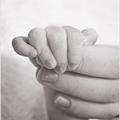August 2015 Moms
 Miz_Liz
member
Miz_Liz
member
Options
Not Pregnancy Related - Breast Cancer
I just saw this article and thought I would share. It is about scientists who recently found a skelleton from 4,200 years ago with signs of breast cancer. As the daughter of a breast cancer survivor, I spend more time than I would like to worrying about what causes cancer - foods, chemicals, cell phones...you name it. This was kind of comforting to see since obviously they didn't have all of the stuff we have to worry about today (not that they didn't have their share of crap to worry about!), but yet it appears it existed even then. That is not to say that I won't still worry or try to avoid things that have been proven to cause cancer, but it does take a LITTLE of the stress away....maybe.
https://www.nbcnews.com/science/weird-science/breast-cancer-signs-seen-4-200-year-old-egyptian-bones-n329626
https://www.nbcnews.com/science/weird-science/breast-cancer-signs-seen-4-200-year-old-egyptian-bones-n329626
This discussion has been closed.



Re: Not Pregnancy Related - Breast Cancer
I totally agree! And your post did not sound like you are not sympathetic to people losing people to cancer - you make some great points and I think you are spot on. Sorry to all of you ladies who have lost someone you love to cancer - it is so hard!
Interesting read though, Thanks for sharing this story!